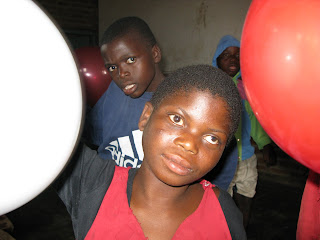
When we decided to come to Malawi, we knew we were coming to an impoverished country. Malawi is rated as one of the four poorest countries in the world. The minimum wage is less than a dollar a day. Unemployment stands at 60-80%. Many families cannot afford the small school fees to send their children to secondary school. HIV/AIDS is rampant. While the reality behind these disturbing facts is at times difficult to witness, we were somewhat prepared for these things. What we were not nearly as prepared for was the wealth in Malawi.
There is wealth of natural resources. Malawi is one of the most beautiful places we have ever been and is increasingly becoming a tourist destination. It has mountains, rivers, game parks and, most prominently, the lake. Lake Malawi, one of the largest lakes in the world, is magnificent. When there you might think you are at the NJ shore; waves slap the beach, sand clings to your feet, wind whips through your hair. You have to keep reminding yourself that this is fresh water. Mt. Mulange, the highest mountain in the country, has dramatic streams spilling out of the solid rock top, gushing down and forming waterfalls; cascading into deep, clear pools. Right now, as the rainy season has recently ended, everything is green and lush. There are flowers and trees in bloom everywhere. The animal life is incredible and wild. Hippos, elephants, zebras, antelope, warthogs, lions, hyenas and many more are abundant in the 6 different game parks spread around the country.
There is a wealth of generosity that is humbling. Even those with so little are willing to share from their meager resources. Friends and distant relatives will adopt orphans into their homes and lives. Everyone chips in to help the widow or widower and his/her family. We have groups from our church visit us each month who bring bags of rice, chickens (sometimes live), eggs and other provisions that we know has cost them much, yet they bring these gifts as a sign of respect and as a testimony to the generous nature of the people here.
There is a wealth of music. Everywhere we go we hear singing. Much of it is spiritual in nature, as Malawians are deeply religious. It is absolutely beautiful to be walking along and hearing voices harmonizing singing praise to God. Recently we were at a retreat center where there was a music camp for 40 orphaned children. The singing was luminous.
We are discovering both the treasures and the tragedy of this beautiful country; unexpected beauty and riches in the midst of poverty and death.


